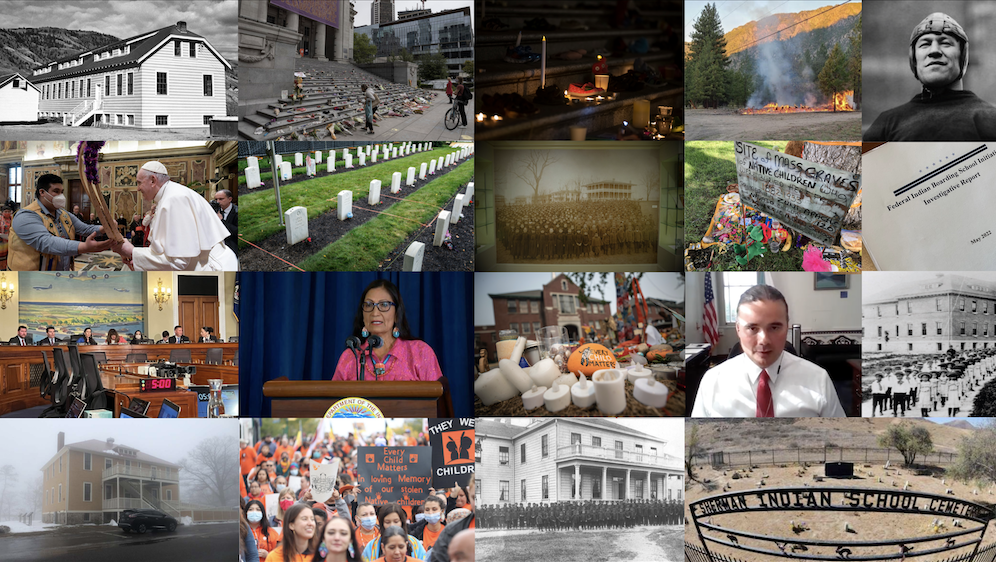
- Details
- By Native News Online Staff
Your questions about Indian Boarding Schools, as answered by our team.
Survivor of 12 years of Boarding School. What's the purpose of the Federal Indian Boarding School Initiative? Asking for an apology is putting salt on the wound might as well not mess with it. I'm 60 years old now and I have carried these wounds for a very long time.
The stated purpose of the Federal Indian Boarding School Initiative is not about the government issuing an apology, but rather about taking responsibility and defining what existing responsibility the government bears in rebuilding the cultures it sought to destroy.
The primary goal of the investigation was to, for the first time in history, identify boarding school facilities; the location of known and possible student burial sites located at or near school facilities; and the identities and tribal affiliations of children interred at such locations.
“To begin the process of healing from the harm and violence caused by assimilation policy, the Department should affirm an express policy of cultural revitalization— supporting the work of Indian Tribes, Alaska Native Villages, and the Native Hawaiian Community to revitalize their languages, cultural practices, and traditional food systems, and to protect and strengthen intra-Tribal relations,” Assistant Secretary for Indian Affairs Bryan Newland wrote in the report’s conclusion.
Read previous Q & As on Indian Boarding Schools
Readers Ask Us 1, June 7th
Readers Ask Us 2, June 10
Readers Ask Us 3, July 21
If you have a question about Indian Boarding Schools, please submit them to [email protected] or use the online form that can be found at the bottom of stories such as this one. Want to help us shine a light on the dark era of Indian Boarding Schools and their continued impact on Native families and communities today? Become a recurring donor for $5 or $10 a month, or make a one-time donation.
More Stories Like This
Native News Weekly (August 25, 2024): D.C. BriefsUS Presidents in Their Own Words Concerning American Indians
Native News Weekly (January 18, 2026): D.C. Briefs
Federal Judge Orders ICE to Halt Use of Pepper Spray, Arrests of Peaceful Protesters in Twin Cities
Tunica-Biloxi Cultural Leader John D. Barbry Walks On
Help us defend tribal sovereignty.
At Native News Online, our mission is rooted in telling the stories that strengthen sovereignty and uplift Indigenous voices — not just at year’s end, but every single day.
Because of your generosity last year, we were able to keep our reporters on the ground in tribal communities, at national gatherings and in the halls of Congress — covering the issues that matter most to Indian Country: sovereignty, culture, education, health and economic opportunity.
That support sustained us through a tough year in 2025. Now, as we look to the year ahead, we need your help right now to ensure warrior journalism remains strong — reporting that defends tribal sovereignty, amplifies Native truth, and holds power accountable.
 The stakes couldn't be higher. Your support keeps Native voices heard, Native stories told and Native sovereignty defended.
The stakes couldn't be higher. Your support keeps Native voices heard, Native stories told and Native sovereignty defended.
Stand with Warrior Journalism today.
Levi Rickert (Potawatomi), Editor & Publisher

